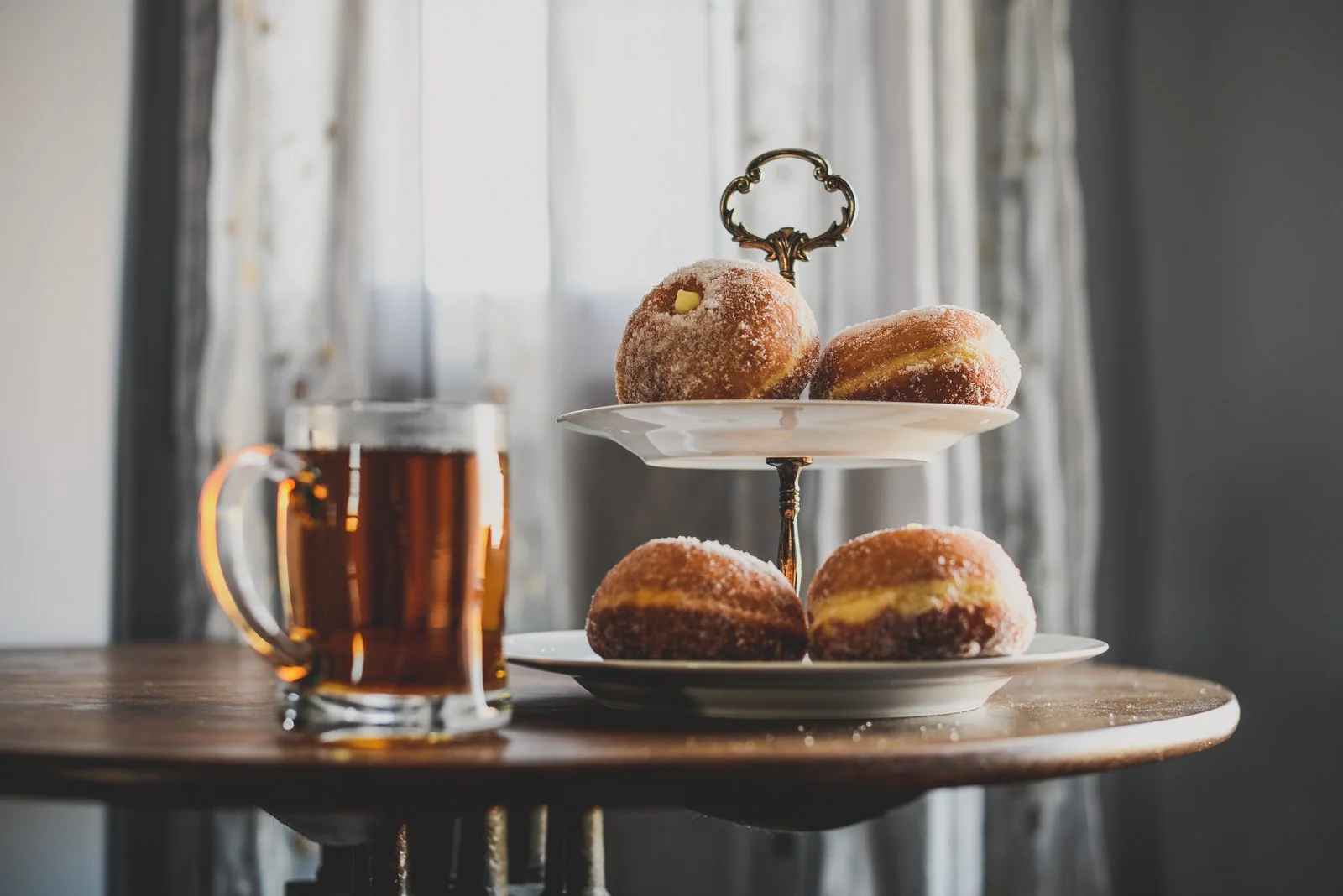The Empty Days
I was reading an article on how to spend a mental health day, and my answer to that is: silence and tea. (And in this case, a doughnut from The Italian Centre Shop). Or, emptiness. This led me to the words by Thich Nhat Hanh who says:
"We spend a lot of time looking for happiness when the world right around us is full of wonder. To be alive and walk on the Earth is a miracle, and yet most of us are running as if there were some better place to get to. There is beauty calling to us every day, every hour, but we are rarely in a position to listen.
The basic condition for us to be able to hear the call of beauty and respond to it is silence."
– from Silence, by Thich Nhat Hanh
Silence is difficult enough to come by in this world, and I think it's inner silence that's most difficult to come to. The to-do list clamours, the doubts, the self-nagging, the voices of all the people in our lives....(or maybe that's just me). It's so important to schedule an empty day, a day where we can just sit and watch the changing light of a room, as May Sarton says.
"I always forget how important the empty days are, how important it may be sometimes not to expect to produce anything, even a few lines in a journal. A day when one has not pushed oneself to the limit seems a damaged damaging day, a sinful day. Not so! The most valuable thing one can do for the psyche, occasionally, is to let it rest, wander, live in the changing light of a room."
– from Journal of a Solitude by May Sarton
And if you find an empty day, could you, at the end of the day, write a poem? The day itself, I think, would be a kind of poetry. Would it be possible to write a small, good poem, smelling of tea, or moss?
I Have Three Poems
by Olav H. Hauge
I have three poems,
he said.
Who counts poems?
Emily tossed hers
in a trunk, I
doubt if she counted them,
she simply opened another tea bag
and wrote a new one.
that was right. A good poem
should smell of tea.
Or of raw earth and freshly cut wood.
– from The Dream We Carry
I've quoted this before in other places, and can't find a proper source for it, but because I love it so much, here it is again:
Remember
That to have the eyes of an artist,
That can be enough,
The ear of a poet,
That can be enough.
The soul of a human
just pointed
in the direction of the divine,
that can be more than enough.
I tell you this to remind myself.
Every gesture is an act of creation.
Even empty spaces and silence
can be the wings and voices of angels.
– Michele Linfante
I like the line "I tell you this to remind myself," which is pretty much the real reason I write this blog. Everything I'm putting here is to remind myself.
Remember: just making an empty space and sitting quietly in it can be a creative act.
And next, a poem I've never seen before about Rumi. You all know how I feel about Rumi.
Rumi's Silence
by Michael Shepherd
Rumi wrote much about silence.
Does that seem strange?
Poets live with silence:
the silence before the poem;
the silence whence the poem comes;
the silence in between the words, as you
drink the words, watch them glide through your mind,
feel them slide down your throat
towards your heart;
the silence which you share with the poet
when the poem ends, sitting side by side,
feeling one another being one heart;
the silence after the poem,
when you are a different person
from the person who started reading the poem,
think differently, move differently,
act differently; know Rumi a little better
as a friend; know yourself a little more
as a friend.
Rumi was asked, why do you
talk, talk, talk, so much
about silence?
He said, the radiant one inside me
has said nothing.
And that’s the silence which we listen to
and hear in Rumi’s heart,
here, sitting in the cool shade
which the scent of roses seems to love,
while the fountain gently plays like a poet
with sound and silence.
Lastly, Rumi, himself.
(And here I walk to my bookshelf to pluck The Essential Rumi from my shelf. Why don't I just leave it on my desk?)
“This is how it always is
when I finish a poem.
A great silence overcomes me,
and I wonder why I ever thought
to use language. ”








